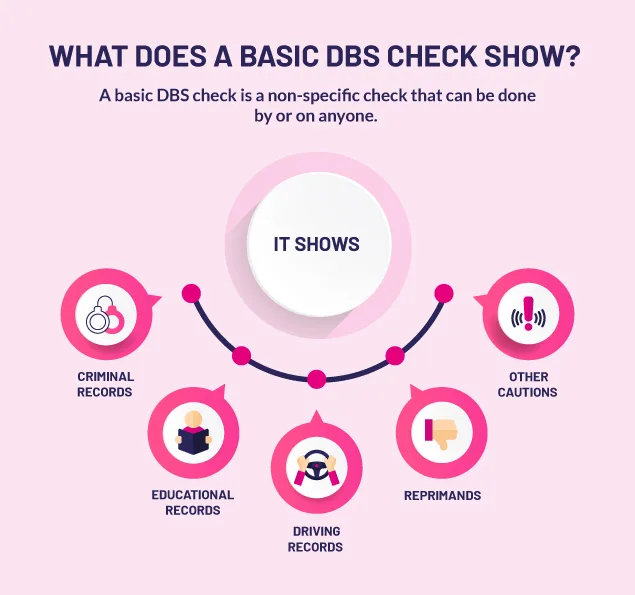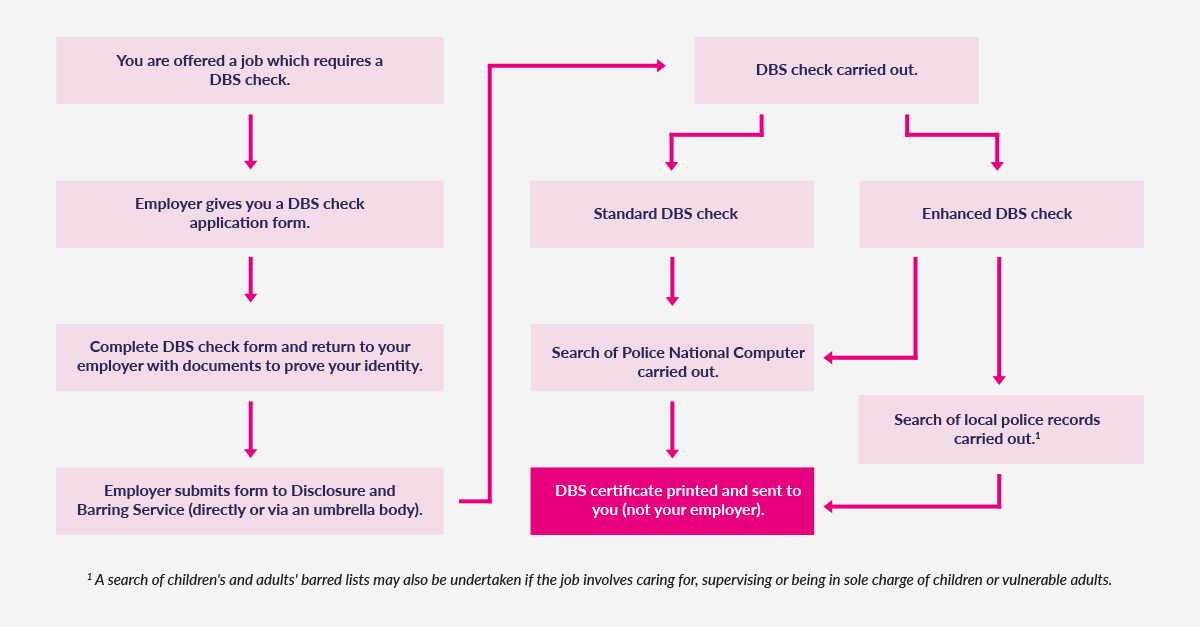Topics: Talent Compliance, Talent Management
Posted on September 23, 2024
Written By Sakshi Sharma

The recruitment process is lengthy and to do it right requires a lot of effort and due diligence. A DBS background check is a critical, necessary part of a full-cycle recruitment process. Conducting a thorough DBS background check is essential, and the outcome of the hiring process may depend on the results of the DBS background check process.
Background checking is a crucial step in the recruitment process, helping employers make informed decisions and ensuring a safe and positive work environment. Statistics highlight the significance of background checking, with 60% of CVs containing false or inaccurate information. DBS checks, a key component of background checking, have efficient turnaround times, with 85% of enhanced disclosure returns and 95% of standard DBS checks completed within five working days, and 80% of basic DBS checks taking up to 10 days. On average, DBS checks in the UK take 5.4 days, with thousands returning within 24 hours. By understanding the importance of background checking, employers can mitigate risks and ensure they hire the right candidates for their organisation.
While filling up empty positions is necessary, a failed hire can cost more than an open role. Keeping that in mind, recruiters want to make sure the candidate fits the role and the company well. Background checking allows recruiters to know more about the candidate and also verify the information given by the candidate.
If you are new to background checking, here are ten things you must know about the background check recruitment process.
The background screening process includes processes that look through candidate’s records. Recruiters look for criminal records, educational records, driving records, reprimands, and other cautions. Depending on the role candidates are applying for, experts manage the background checking.
DBS checks may also include soft intelligence from the police. This information might not be available in public domains. For example, someone might not be a convict. Still, the local authority might have important information about the candidate – DBS checks will dig out this information to make sure they are hiring the right candidate.
To increase productivity, organisations need to have a healthy and positive work culture. Companies would not want to hire a serial harasser, a convict, or someone with lousy job records.

There are three different kinds of background checks. Depending on the position, recruiters decide which type of background check is suitable for the candidate. The three different types are:
Basic Level Disclosure – Basic level disclosure is a non-specific check and can be done by or on anyone. Basic level DBS checks are available to anyone who requires a certification. It is open to everyone for any purpose and often suitable for personal license holders.
Standard Level Disclosure – Standard level disclosures are more profound and subject to eligibility according to legislative criteria. Standard level disclosure or such in-depth background checks are essential when hiring accountants, solicitors, or other high ranks in the management. Companies surely would not hire an accountant who has a previous record of embezzlement.
Enhanced Level Disclosure – Enhanced level disclosure check is also subject to eligibility according to legislative criteria. Companies hiring for top ranks in the management often conduct enhanced level background checks on candidates. Role related to payroll management or accountancy might require an enhanced level of disclosure clearance as well.
On average, companies conduct and complete background check within a week or two. However, the majority of the checks are done faster. If you are requesting a DBS check with a thorough background screening, the time will depend on the level of the DBS check.
85% of enhanced disclosure returns within five working days, while 95% of the standard DBS checks return within the same time. However, basic DBS checks are slower and can take up to 10 days for 80% of the checks. On average, UK takes 5.4 days for a DBS check. However, thousands of DBS checks return within 24 hours.

Is background checking a requirement? That depends on the industry and the job role. However, every company should conduct background screening to make sure they are hiring the best-suited candidates. Having a good workplace environment is crucial, and bad hires can ruin that. Not only that, but your employees can affect your business directly or indirectly.
Even if not a DBS check, primary screening is never a bad idea. Verifying basic details such as past jobs and educational records can be verified easily by the recruiters using their phones. However, this might be a problem when employers are not sure what they can and cannot say about their ex-employee. Many employers only disclose basic details such as when they joined, what was their wages and such.
Jobs that mostly require a background check are:
Companies can run a background check on anyone for any position. However, there are jobs where background checking is an essential requirement and have been standard practice for many years.
Background checks in these industries are necessary because if you deal with children, financial issues, sick or vulnerable adults, companies need to make sure you are qualified and eligible for the role. In the healthcare industry, workers provide services directly to the consumer, and any mistake will ruin the company’s name. Not just that, in the healthcare industry, a mistake can cost someone their life.
When you are handling sensitive issues such as finance or someone’s life, it is only natural for the organisation to hire only vetted candidates.
Studies show that almost 60% of CVs contain false or inaccurate information that cannot be verified. It is human nature to exaggerate and overemphasise a specific part of our history. Candidates are human too. Many candidates exaggerate their work experience or educational records to impress the recruiter and improve their chances of getting hired. However, applicants don’t realise the mistake they are making by lying on their resumes.
Background checks are an easy way to dig up new information and verify existing data. A candidate provides many kinds of data on their CV. Educational and work-related information can be verified easily just using the phone. However, screening the background thoroughly, checking on criminal records and personal license records are essential if you want to know who you are hiring.
Applicants should always try to provide legitimate information to the employer. If recruiters find out your lies on the resume, which they will eventually, you will not get the job because of trust-related issues. Many employers are understanding, and applicants get a chance to dispute or dismiss the findings by providing proper reason and evidence. It is advisable to applicants that they should give only the factual information on their CV.
A DBS disclosure certificate is not a license or a permanent document. It only provides a person’s information up to the point when it was requested. A DBS disclosure can change and be updated the next day after it was issued. While a change in the DBS disclosure within 24 hours doesn’t happen very often, it also shows the importance of screening updates.
A DBS certificate can be reused with the employer’s consent; however, it is only relevant and accurate up to the date of issuing. When employing a new candidate, companies should request an up-to-date DBS disclosure certificate.
At this time, a person cannot request a DBS check for themselves. The DBS checking was primarily designed and created to help businesses and organisations with their recruitment decisions by providing up-to-date information on the candidates. Because of this, only an organisation or appropriate bodies such as an employer can request a DBS check.
However, since basic level disclosures are not job-specific, one can request a basic level check on themselves for any purpose.
Checking social media as a part of the background checking process was not standard. However, leveraging social media to hire employees was not common practice either, but now it is.
Candidates often provide only job-relevant data on the resume. As a recruiter, this might give you an idea of how skilled they are, but you still wouldn’t know what kind of an employee they are. To keep the sanctity of the workplace intact, you need to make sure you are hiring people who fit your work culture. In short, you need to know the person more on a personal level, but recruiters often don’t have that time. This is where social media can be your saviour.
Candidates spend a lot of time on social networking sites and often express their views regarding the job market, politics, or socio-economic issues. Screening their social media handle may help you understand the candidate or their thought pattern.
However, social media also allows you to see information such as their age, race, religion, medical history, and sexual orientation, influencing the hiring. The EEOC (Equal Employment Opportunity Commission) dislikes social media screening because of this reason.
Employers cannot hire or reject someone based on this information and can leave themselves open to legal actions. Candidates can legally challenge the company if they feel they were not hired because of personal factors such as race or sexual orientation.
DBS checks are a service that provides up-to-date information about the candidate. However, a candidate’s situation can change drastically, and things might happen. For such cases, DBS Update Service is an essential service for recruiters and employers. As DBS constantly updates the records, all changes to criminal records are logged instantly.
DBS update service allows employers to keep their DBS checks updated. Recruitment outsourcing companies provide DBS Update Services, which helps employers check on the DBS update weekly, monthly, or quarterly. Employers can check someone’s DBS up-to-date certificate whenever they want.
Roles high in the management or specific industries require a background screening and DBS checks to ensure the organisation is hiring the right fit for the company. While educational and work-related information can be verified quickly, DBS checks help employers provide an up-to-date criminal record of the potential employee.
While DBS checks and other background verification are essential, employees should not be biased in their hiring decisions based on race, age, sex, gender, or social media posts. Companies should ask the candidate’s permission before conducting a background check and give the candidate a chance to dispute the findings if there is any.
Background checking requires a focused and non-biased approach. Top companies often outsource their background screening services to eliminate bias, extra expenses, and time consumption.
QX Recruitment Services, also serving as a compliance specialist in the recruitment landscape, offers candidate compliance check and management service to staffing firms, including DBS check, HMRC compliance check, tax credits compliance checks and much more. If your agency needs support managing candidate compliance, click the button below, and request a callback.
Originally published Sep 23, 2024 06:09:08, updated Sep 24 2024
Topics: Talent Compliance, Talent Management